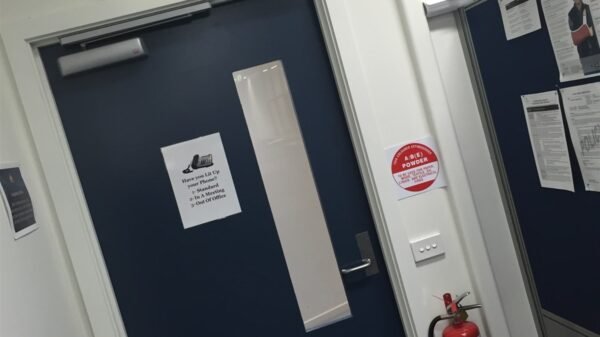If you only focus on short-term financial goals, you might be able to resolve difficulties in that moment, but not prevent future ones. If you only have long-term financial goals, you may not live long enough to see them fulfilled. Finding a flexible middle ground between these two ways of thinking while developing a financial plan is the key to becoming your own financial counselor.
Forecasts are often used in financial planning to provide insight into future financial capacity, allowing you to design long-term sustainability solutions based on your financial objectives and difficulties. Financial planning as a practice considers a variety of factors; including your money, your job, your goals, your personality, and your behavior.
Furthermore, it is a long-term project that will continue for several years or decades. Even when taking every precautionary measure to manage your finances correctly, there are some that you can’t predict.
- The Abrupt Cessation of a Revenue Source
- Income and Expense Mismanagement
- Unanticipated Financial Hardship
- Investment Underperformance
To overcome these challenges, consider the following guidelines.
Set Goals
Setting goals will give you strategic direction and a destination to aim for. Keep obvious objectives in mind when making financial goals, such as monthly saves or retirement investing.
However, keep in mind that you may have extra goals that do not immediately come to mind as financial. Do you think you’ll need a new computer in the next few years? Perhaps you should add purchasing a new computer to your list of goals for the next two years.
Anticipating future expenses and considering them into your financial plan may put you in a better position to fund them without making further budgetary concessions. As you construct your financial goals, keep in mind the first lesson from Chapter One about goal setting.
Your objectives should be SMART, which stands for specific, measurable, achievable, reasonable, and time-bound. In addition, you should set short-, intermediate-, and long-term goals. By defining each of these types of goals early in the plan, you can accomplish success while also planning. Short-term or intermediate goals can also be used to help accomplish long-term objectives.
Track Your Spendings
Keeping track of your spending necessitates keeping a record of your monthly expenditures. It is an important step that you should take every month.
When you first start, it may appear that itemizing your costs is a lot of work. Understanding why tracking expenses is important and how to do so efficiently, on the other hand, will help you commit to the practice and become more mindful of your spending.
If you are continually in debt, it shows that you do not manage your money wisely. It is critical to keep track of your expenditures to avoid getting into financial trouble.
During the month, people buy a lot of things. It could be as simple as a pack of gum, a newspaper, or ice cream, or as complex as apparel and household products. When you look back over your purchases at the end of the month, you may find that you made more than 50 transactions within that period.
If you don’t keep track of your costs, it’s easy to spend more than you earn at that rate.
Keeping a Spending Log?
Being mindful of our spending habits is the most efficient method to spend our money. When you know how much money you spend, it is much easier to balance your income and expenses and even save for the future.
If you have a budget (daily, monthly, or even annual), keeping track of your expenditures is the most effective way to stick to it. You can monitor where your money is going and guarantee that it is being spent appropriately if you keep track of your expenditures.
Keeping a spending journal allows you to understand why you’re in debt (if you are) and how you got there. This will then help you build a debt-reduction strategy that is tailored to your specific needs.
Emergency Fund
An emergency fund’s objective is to provide a safety net in the event of a financial disaster. No matter how well-prepared you believe you are, you should never underestimate the possibility of an unexpected cost surfacing and knocking you off your feet.
An emergency reserve is a fund set up meant to handle unforeseen events such as an illness, job loss, or even a delayed bill payment. While the actual amount of emergency money you have will vary depending on your circumstances, it should be enough to cover three to six months of fixed costs. You can also save enough money to cover variable expenses like entertainment and dining out.
People of all ages are eligible to obtain emergency assistance. They are vital for freelancers, persons with bad credit, and people with fluctuating incomes. Make an emergency fund a part of your entire personal financial strategy. If you find yourself in an emergency and you do not have an emergency fund, you can always take out an online installment loan to sort the emergency out.
Invest
You must put your money to work for you if you truly want to be your own financial coach. This is where investment comes into play. However, before investing any of your hard-earned money, it is critical to have well-defined objectives. Consider the investment’s goal, the period in which you will need the funds, and your risk tolerance.
Investing is a long-term undertaking that demands dedication if you want to see your money grow. Are you concerned that you will need your money soon? That is why you have savings accounts: to save money for emergencies and short-term goals.
Furthermore, you should ensure that you have a working knowledge of (at the absolute least) any investment in which you intend to put your money (e.g., the stock market, real estate, or small business). Your investing goals should be integrated into your monthly budget, with a specific part of your income committed to your investment objectives.
Achieving Financial Independence
A financial plan is a living document that should be updated as your circumstances change. Following big life events such as marriage, the start of a new career, the birth of a child, or the death of a loved one, it is prudent to reevaluate your financial strategy. Learning how to create a financial plan tailored to your objectives will help you achieve them! Remember that this is your trip, not anyone else’s and that having a budget in place is essential.





























































